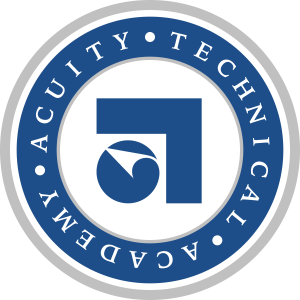Lesson 3 - The Birth of a Podcast
Section outline
-
Objectives
Students will learn what a podcast is
How a podcast is produced and how it functions in media
Students will be able to understand and articulate the birth, growth, and evolution of podcasting.
-
-
Discussion Question: The Art of Podcast Storytelling
Question:
Podcasts are a unique way to tell stories and share ideas. Think about a podcast you’ve listened to or imagine creating your own.- What makes a podcast engaging for listeners? Is it the content, the host’s voice, the production quality, or something else?
- If you were creating your own podcast, what would it be about? Who would your audience be, and how would you keep them engaged?
- How does podcasting differ from other forms of media broadcasting, like TV or radio?
After posting your response (at least 3–5 sentences), read and reply to two classmates' posts by:
- Offering feedback on their podcast idea.
- Suggesting ways they could enhance audience engagement.
-
Otvoreno: ponedjeljak, 10. veljače 2025., 12:27
Create a list of 10 topics you would like to address within your podcast. Identify 2-3 reasons for each topic and type them below. What you create here will be the foundation of your next 3 lessons.
-
Otvoreno: utorak, 4. veljače 2025., 00:00
- Use your cell phone, laptop, or Ipad to record your podcast. Upload the link to your recording here.
- Make sure your podcast is 3-5 minutes in duration.
If you do not have a cell phone follow instructions below.
- Open Zoom, Go to Meetings in the top right corner. (I said settings in the video)
- Click Edit, Scroll down to Advanced Options
- Choose "automatically record meetings
- Click Home in the top left corner
- Click new meeting
- Record your podcast (3-5 minutes)
- Leave Meeting and allow computer to convert your recording
- Name the file by clicking on the text under the recording
- Title your file last name first then first name, hit enter or return
- Grab and drag your recording to the desktop
- Go to your school email and click on your Google Drive
- Select new file
- Find your recording and add it to your Google Drive (this may take some time to upload)
- Find your recording in your Google Drive
- Click on your recording and copy the link
- Manage Access so that anyone with the link can view it
- Upload that link below for full credit.
- For those that used a cell phone you can upload your video to a Google Drive folder, then share that link below.
This learning lab is designed for you to showcase what you have learned in this lesson. Once complete please scroll down to the step 6 quiz.
-
The Birth of Podcasting
The term podcasting was coined in 2004, in an article published by the Guardian. Ben Hammersley wrote about a new technology that was starting to
catch on: audio blogs, or episodic content that could be automatically downloaded and listened to on portable devices.At the time, MP3 players such as iPods were allowing people to carry around an unprecedented
amount of high-quality audio in their pocket. Hence the term podcast.
As blogs and websites began producing audio content, the technology was developed to make
consuming the content easier and easier.By 2005, iTunes included native podcast support. Everyone who used iTunes could now explore
the world of podcasts and listen at the click of a button.As listenership continued to swell, the number and variety of podcasts being produced
exponentially increased. Producing quality audio content was becoming easier all the time. In
2006, Apple released Garage band with a built-in podcast maker. A laptop and microphone could
accomplish what used to be done by professionals in fully equipped radio booths and recording
studios.This democratization has given voice to so much diverse talent and with it so many unique
perspectives. With very little cost, anyone with something to say now has a platform on which to
say it.What began as a fringe medium for tech bloggers has in 2017 grown into an entire industry.
There are podcast networks, production companies, and corporate sponsorships fueling growth,
raising funds and allowing more and better content to continually appear.According to Google - Podcasting was, in fact, developed in 2004, when Adam Curry, former
MTV video jockey, and software developer Dave Winer, coded a program known as iPodder,
which enabled them to download Internet radio broadcasts to their iPods. Curry now hosts The
Daily Source Code, one of the most popular podcasts on the Internet.According to wikipedia - Podcasts, previously known as "audio blogs", had its roots dating back
to the 1980s. With the advent of broadband Internet access and portable digital audio playback
devices such as the iPod, podcasting began to catch hold in late 2004.[1] Today there are more than 115,000 English-language podcasts available on the Internet, and dozens of websites
available for distribution at little or no cost to the producer or listener.
